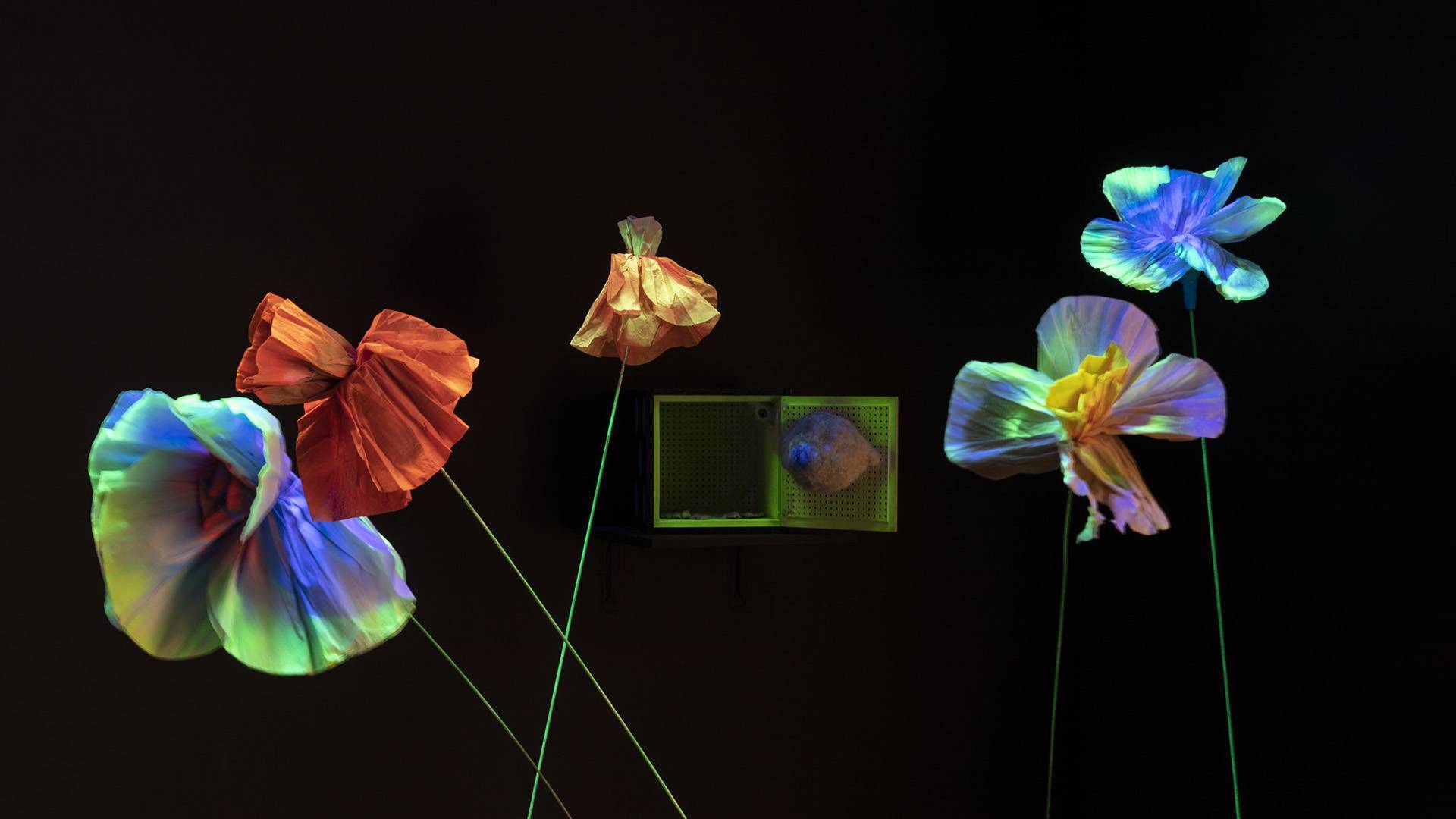
Born into a family of artists, Tetsumi Kudo between the 50s and 60s is a key figure of the Japanese artistic avant-garde. His work is an open critique of consumerism and political conformism in Japan. In 1962 he moved to France, since then his adopted homeland, where he joined the Nouveau Realisme movement. Over a four-decade career, Kudo has deeply investigated the human experience, questioning in particular the proliferation of mass consumption and the rise of technology. In his sculptures and installations artificial fragments of body are mixed with clocks, thermometers, and laboratory ampoules in a dimension that the artist defines as “New Ecology”: a sort of closed circuit in which ethical values become exchangeable as consumer goods and technology, nature and humanity intersect daily influencing each other.